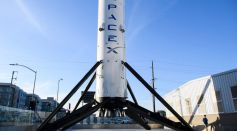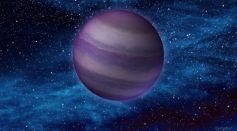SPACE

SpaceX Inspiration4 First Civilian Crew Including Cancer Survivor to Launch Soon; How To Watch Live
NASA’s Mars Perseverance Rover Successfully Collects 2nd Rock This Week, NASA Expects More "Amazing Discoveries"

Milky Way Galaxy Origin Solved? Brown Dwarf 'The Accident' Missing Link Between Planets and Stars May Have the Answer
Milky Way is Indeed a Messier Object After All; Scientists Claim This Galaxy Isn't Homogeneous
Planet 9: Is Its Existence in the Solar System True or Is It Just an Illusion? Here's What Studies Say
James Webb Space Telescope Will Finally Take-Off on December After Decade-Long Delay; NASA and ESA Sets Sun-Earth Lagrange Point as First Stop
International Space Station's Drinking Water Full of Bacteria! Study Investigates How Microbial Life Affects Long-Haul Space Mission

SpaceX Inspiration4 Crew to Conduct Medical Research on Space; Here's What It Means
Mysterious Signal Flashing From Galaxy’s Core Baffle Scientists; Where Is There Source of This Radio Waves?
Mars' Surface Has Structural Features That Serves as Natural Shelter to Protect Explorers from Radiation
Retired NASA Astronaut Shares What It's Like to Land on Earth, Compares It to a Series of Car Crashes
Space Microbes Can Infect Human Beings, Experts Say; Are Viruses Present Somewhere in the Universe?
3D Printing Allows Astronomers to Hold Stellar Nurseries in Their Hands to Observe the Stars
SpaceX Working With Space Force for Innovative Launches Like Falcon 9 With GPS III Satellite; Here's What It Means
Most Popular

Ocean Acidification, Marine pH Change, and CO2 Absorption: How Coral Reef Damage and Shellfish and Plankton Impacts Threaten Marine Life

Dark Matter Explained: What We Know, What We Don't, and How It Shapes Cosmic Structure

Memory and Learning: How the Brain Stores, Retrieves, and Forgets Information

Solar Storm Risks: How Geomagnetic Storms Threaten Earth's Power Grids and Satellites




